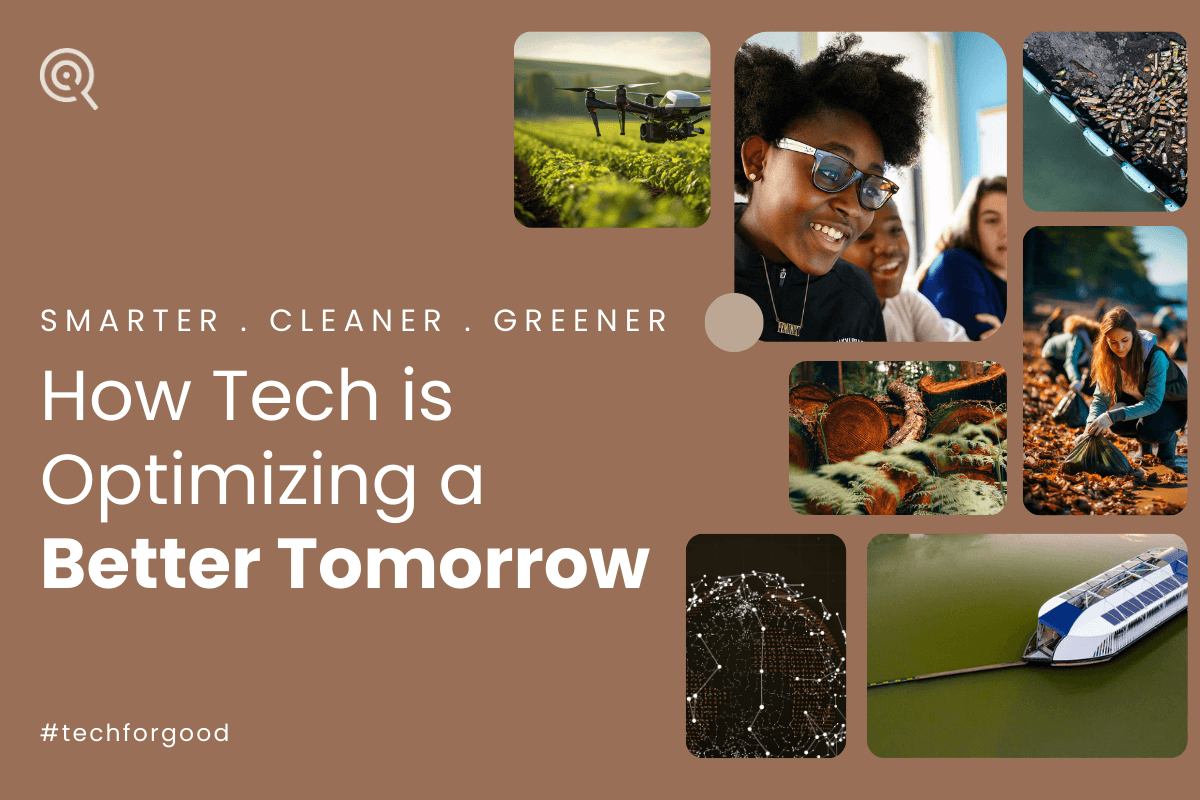
Remember when Iron Man blasts his way through a swarm of robots? Imagine if instead of repulsor rays, he whipped out a smartphone app to optimize crop yields for starving villages or deployed a fleet of drones to clean plastic from the ocean. Sounds less explosive, maybe, but just as heroic!
That's the reality of tech for good, where innovation becomes a beacon of hope, tackling our planet's toughest challenges. No capes or spandex required (although, let's be honest, a cool tech suit wouldn't hurt). We're talking about everyday heroes armed with code, algorithms, and a whole lot of ingenuity, ready to reimagine the world.
This week, we explore awe-inspiring tech titans bettering the planet with game-changing technology solutions. This is technology with a purpose, innovation with a heart, and a journey you won't want to miss.
DroneTech Powering Reforestation

Education Evangelists: Technology Driving Blackboard Revolution

A Future Powered by Green Innovation

As the climate crisis gets hotter than a dragon's breath, eco-champions armed with tech are on the frontlines!
Meet the real-life Aquamen! The Ocean Cleanup – a non-profit organization committed to cleaning up plastic-polluted seas and rivers. Their Interceptor solutions, powered by solar mechanics, smart processing, and connectivity, can map and collect plastic debris, leaving the oceans sparkling clean. California startup Aquacycl has developed the first commercially viable microbial fuel cell, a technology promising to revolutionize the treatment of water used in manufacturing. These fuel cells, called the BioElectrochemical Treatment Technology system (BETT), generate direct electricity from the bacteria already in the wastewater. Recently, Aquacyl has partnered with beverage giant PepsiCo to clean up the company’s industrial wastewater. This partnership will help the soft drink manufacturer cut up to 90% of its greenhouse gas emissions, eliminating 100 tons of greenhouse gas every month.Recycling Made Simpler with AI and Robotics

A study by National Geographic finds that the present trend of plastic usage will lead to 12 billion metric tons of plastic in landfills by 2050. That amount is 35,000 times as heavy as the Empire State Building.
But wait! Enter the heroes of this trashy tale: AI-powered robot warriors armed with brainy vision systems and articulated arms. These new generations of trash-sorting robots are working alongside humans at recycling centers. AI-driven optical technology provides real-time data about waste-stream contaminants. These data can be used to steer manufacturers toward more recycling-friendly product designs.
With the mission to develop and operate innovative reuse, recycling, and zero-waste programs that improve the environmental quality of the community, Recycle Ann Arbor has installed a sorting robot from Machinex called the SamurAI. Glacier, on the other hand, is building a proprietary AI algorithm capable of recognizing over 90% of recyclables in the waste stream. These purpose-built, custom-made robots can use AI information to identify items, pick them up off of a moving conveyor belt, and sort them into the correct location.Building a Better Tomorrow, Byte by Byte
These are a few of the remarkable instances of how technology is reshaping the world for the better. From saving the planet to empowering people, the possibilities are endless. So, join the movement! Share these stories and support these initiatives to build a future where technology is recognized as the force for good and not merely limited to hyped gadgets and gizmos.


